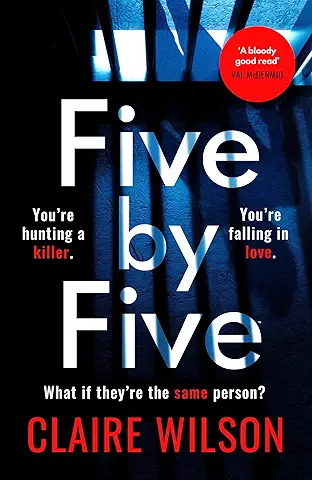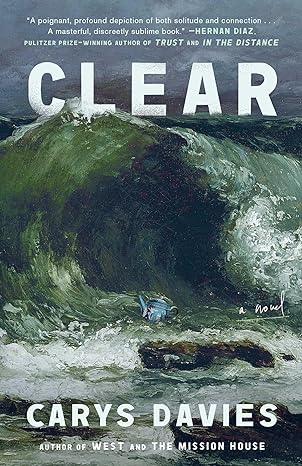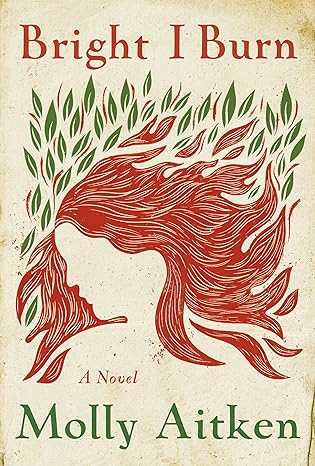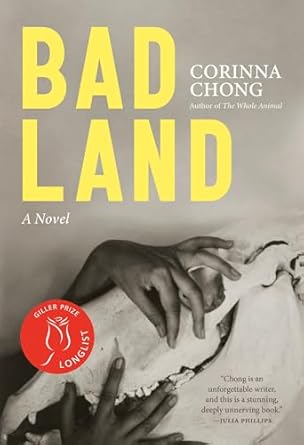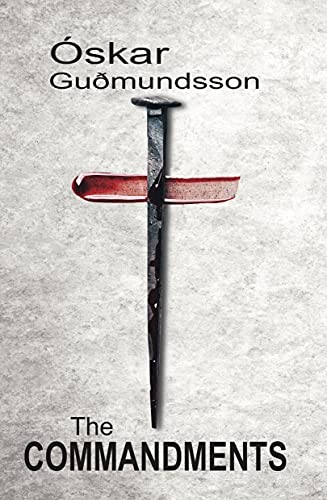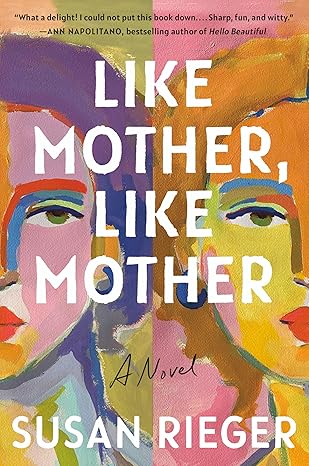Schatje’s Favourite Books Read in 2024
Of the 105 books I reviewed this year, here are my favourites; all received a 4-star rating. Unless I’ve indicated a date, the books were published in 2024. It’s been a great year of reading!
Best Literary Fiction
Cloud Cuckoo Land by Anthony Doerr (American, 2021) https://schatjesshelves.blogspot.com/2024/01/review-of-cloud-cuckoo-land-by-anthony.html
Leaving by Roxana Robinson (American) https://schatjesshelves.blogspot.com/2024/02/review-of-leaving-by-roxana-robinson.html
After Annie by Anna Quindlen (American) https://schatjesshelves.blogspot.com/2024/03/review-of-after-annie-by-anna-quindlen.html
A Great Country by Shilpi Somaya Gowda (Canadian) https://schatjesshelves.blogspot.com/2024/03/review-of-great-country-by-shilpi.html
Juno Loves Legs by Karl Geary (Irish, 2023) https://schatjesshelves.blogspot.com/2024/04/review-of-juno-loves-legs-by-karl-geary.html
Long Island by Colm Tóibín (Irish) https://schatjesshelves.blogspot.com/2024/05/review-of-long-island-by-colm-toibin.html
Rules of Civility by Amor Towles (American, 2011) https://schatjesshelves.blogspot.com/2024/05/review-of-rules-of-civility-by-amor.html
Toxic by Helga Flatland (Norwegian) https://schatjesshelves.blogspot.com/2024/05/review-of-toxic-by-helga-flatland-new.html
The Axeman’s Carnival by Catherine Chidgey (New Zealand, 2022) https://schatjesshelves.blogspot.com/2024/06/review-of-axemans-carnival-by-catherine.html
Forgotten on Sunday by Valérie Perrin (French) https://schatjesshelves.blogspot.com/2024/06/review-of-forgotten-on-sunday-by.html
Bear by Julia Phillips (American) https://schatjesshelves.blogspot.com/2024/06/review-of-bear-by-julia-phillips-new.html
One Grand Summer by Ewald Arenz (German) https://schatjesshelves.blogspot.com/2024/07/review-of-one-grand-summer-by-ewald.html
In Winter I Get Up at Night by Jane Urquhart (Canadian) https://schatjesshelves.blogspot.com/2024/09/review-of-in-winter-i-get-up-at-night.html
Songs for the Brokenhearted by Ayelet Tsabari (Canadian) https://schatjesshelves.blogspot.com/2024/09/review-of-songs-for-brokenhearted-by.html
Tell Me Everything by Elizabeth Strout (American) https://schatjesshelves.blogspot.com/2024/09/review-of-tell-me-everything-by.html
Real Ones by Katherena Vermette (Canadian) https://schatjesshelves.blogspot.com/2024/09/review-of-real-ones-by-katherena.html
Death and Other Inconveniences by Lesley Crewe (Canadian) https://schatjesshelves.blogspot.com/2024/10/review-of-death-and-other.html
Brotherless Nights by V. V. Ganeshananthan (American) https://schatjesshelves.blogspot.com/2024/11/review-of-brotherless-night-by-v-v.html
Sandwich by Catherine Newman (American) https://schatjesshelves.blogspot.com/2024/11/review-of-sandwich-by-catherine-newman.html
Bad Land by Corinna Chong (Canadian) https://schatjesshelves.blogspot.com/2024/12/review-of-bad-land-by-corinna-chong.html
Best Historical Fiction
The Swan’s Nest by Laura McNeal (American) https://schatjesshelves.blogspot.com/2024/03/review-of-swans-nest-by-laura-mcneal.html
The Hazelbourne Ladies Motorcycle and Flying Club by Helen Simonson (English) https://schatjesshelves.blogspot.com/2024/05/review-of-hazelbourne-ladies-motorcycle.html
The Heart in Winter by Kevin Barry (Irish) https://schatjesshelves.blogspot.com/2024/07/review-of-heart-in-winter-by-kevin.html
The Wildes by Louis Bayard (American) https://schatjesshelves.blogspot.com/2024/09/review-of-wildes-by-louis-bayard-new.html
Clear by Carys Davies (Welsh) https://schatjesshelves.blogspot.com/2024/12/review-of-clear-by-carys-davies.html
Best Crime Drama/Psychological Suspense/Mystery
One of the Good Guys by Araminta Hall (English) https://schatjesshelves.blogspot.com/2024/01/review-of-one-of-good-guys-by-araminta.html
Yule Island by Johana Gustawsson (French, 2023) https://schatjesshelves.blogspot.com/2024/02/review-of-yule-island-by-johana.html
Dead Sweet by Katrín Júlíusdóttir (Icelandic, 2023) https://schatjesshelves.blogspot.com/2024/02/review-of-dead-sweet-by-katrin.html
The Guests by Agnes Ravatn (Norwegian) https://schatjesshelves.blogspot.com/2024/02/review-of-guests-by-agnes-ravatn.html
A Man Downstairs by Nicole Lundrigan (Canadian) https://schatjesshelves.blogspot.com/2024/03/review-of-man-downstairs-by-nicole.html
Pet by Catherine Chidgey (New Zealand, 2023) https://schatjesshelves.blogspot.com/2024/03/review-of-pet-by-catherine-chidgey.html
The God of the Woods by Liz Moore (American) https://schatjesshelves.blogspot.com/2024/11/review-of-god-of-woods-by-liz-moore.html
All the Colours of the Dark by Chris Whitaker (American) https://schatjesshelves.blogspot.com/2024/12/review-of-all-colours-of-dark-by-chris.html
The Night in Question by Susan Fletcher (English) https://schatjesshelves.blogspot.com/2024/12/review-of-night-in-question-by-susan.html
Best Crime Series
I read the latest installments in some favourite crime series. Here are my top five.
From Sweetgrass Bridge by Anthony Bidulka (Canadian) https://schatjesshelves.blogspot.com/2024/05/review-of-from-sweetgrass-bridge-by.html - the 2nd Merry Bell Mystery
Boys Who Hurt by Eva Björg Ægisdóttir (Icelandic) https://schatjesshelves.blogspot.com/2024/06/review-of-boys-who-hurt-by-eva-bjorg.html - the 5th in the Forbidden Iceland series
All the Way Gone by Joanna Schaffhausen (American) https://schatjesshelves.blogspot.com/2024/08/review-of-all-way-gone-by-joanna.html - the 4th in the Detective Annalisa Vega series
The Dark Wives by Ann Cleeves (English) https://schatjesshelves.blogspot.com/2024/08/review-of-dark-wives-by-ann-cleeves-new.html - the 11th in the Vera Stanhope series
Living is a Problem by Doug Johnstone (Scottish) https://schatjesshelves.blogspot.com/2024/09/review-of-living-is-problem-by-doug.html - the 6th in the Skelfs series

